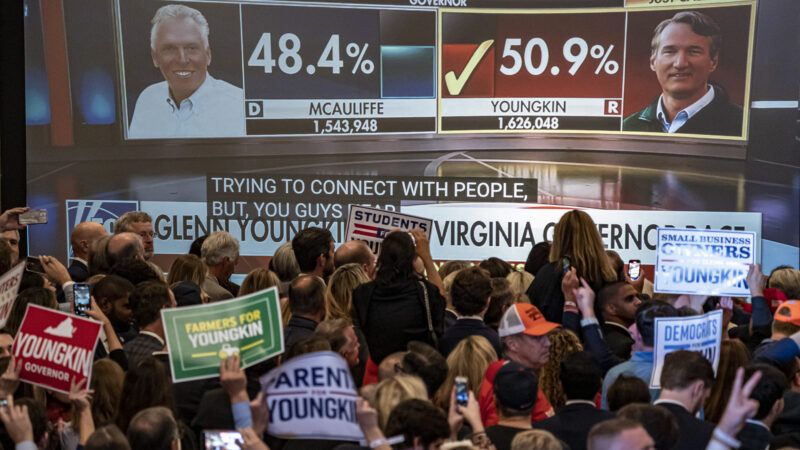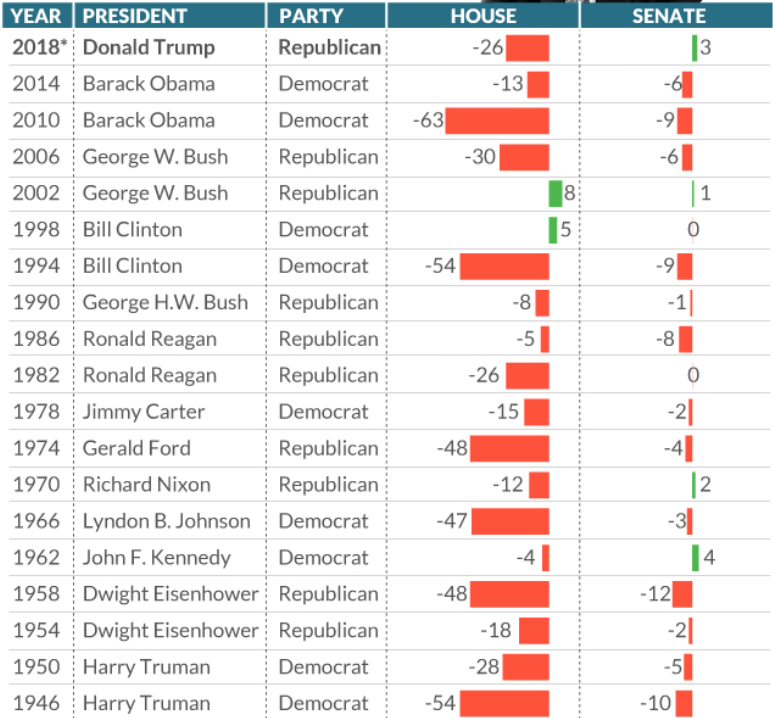It's Still the Economy, Stupid (Not Critical Race Theory or Trans Bathrooms)
One of the hardest political lessons to learn is that pocketbook issues are the main driving force of electoral successes and failures.

As I write this, it's not even fully settled who has won the New Jersey gubernatorial race, which, along with the governor's race in Virginia, is one of two bellwether contests this season. Yet a narrative is already hardening like cement around the shoes of a murdered mafioso that what's really going to be front and center in American politics through the midterms are discussions of race and history in K-12 schools. "'Critical Race Theory' Has Been a Winner for Years," huffs New York magazine, taking for granted that the 2022 midterms will be played out over whether The 1619 Project is assigned reading in the nation's 14,000 school districts.
This is perhaps comforting for Democratic losers (especially those who cry racism at every defeat) and Republican winners (who almost always mistake displeasure with Democrats for an embrace of GOP values) because it gives one a cheap excuse for losing and the other a facile game plan going forward. But it's fundamentally misleading.
In 1992, Bill Clinton eked out a presidential victory—he won with just 43 percent of the popular vote—because of his mantra, "It's the economy, stupid," a phrase attributed to his campaign manager, James Carville. With very rare exceptions, pocketbook issues trump all others, and a sluggish economy coupled with a sense of foreboding about the direction of the country spell doom for incumbents and candidates allied with the party in power.
Indeed, that's the main subtext of the Virginia and New Jersey races. CNN exit polls in Virginia show that the single largest issue for voters was the economy/jobs (33 percent), followed by education (24 percent), taxes (15 percent), coronavirus (14 percent), and abortion (8 percent). Exit polls from Fox News find roughly the same thing, with 35 percent citing economy/jobs as their top concern, 17 percent citing coronavirus, and just 14 percent citing education. While Fox News trumpeted that 72 percent of respondents said the debate over "critical race theory" in schools was an "important factor" for them, fully 86 percent said the handling of COVID in schools was important, 85 percent said the candidate's views on taxes mattered, and 76 percent said that negotiations over President Joe Biden's governing agenda were a big deal.
Exit polls from the New Jersey race haven't been released as of this writing, but the final survey of voters by Monmouth University found that taxes were overwhelmingly the biggest voter concern (27 percent), followed by the economy/jobs (20 percent), education and schools (16 percent), the COVID pandemic (15 percent), and crime (7 percent).
Biden is a massively unpopular president, which is to say his approval ratings are similar to former President Donald Trump's, the only one-term president since George H.W. Bush failed to win reelection 29 years ago (this, despite a sweeping victory in the Gulf War and a refusal by most major Democrats to run against him). Biden's overall aggregate approval rating at RealClearPolitics is just 43 percent and only 40.6 percent approve of his handling of the economy. Just 39 percent think the country is headed in the right direction.
Who can blame us, really? The first 10 months of Biden's America have been replete with a terrible economy, rising and persistent inflation that keeps getting called temporary, a disappearing workforce, and supply-chain concerns. Add on top of that the persistent threat of Democrats raising taxes and passing massive, budget-breaking spending bills with the slimmest of majorities that will involve the federal government in virtually every business transaction that takes place at every level. That's a recipe for a throw-out-the-incumbent-party tsunami that will result in massive midterm losses for the Dems. In fact, the president's party virtually always loses seats in the double digits (see chart).

That's especially true in the first midterm election of a president. Trump lost 26 House seats three years ago and before him Barack Obama took a self-described "shellacking" in 2010, coughing up 63 House seats in 2010. George W. Bush was the only president in decades to actually gain seats in the House during his first midterm elections, a feat that is attributable to the aftershocks of the 9/11 attacks, an exceedingly rare event in American history.
A fixation on culture-war issues such as teaching critical race theory will appeal to both major parties because it allows them to sidestep the reality that both are terrible when it comes to growing the size, scope, and spending of government. Whatever else you can say about Trump, he oversaw a massive increase in per-capita spending (in early 2020, The New York Times reported that "total federal spending has increased by $1,441 per person since 2016"). Biden came into office promising to increase spending by $11 trillion over the coming decade. If he continues to get his way, that might end up being a short count.
Going back at least to the presidency of George W. Bush, who massively increased spending and the reach of the federal government while claiming to be a small-government kind of guy, the smart play in Washington has been to say you believe in limited government while lavishing your friends and constituents with tons of tax dollars. It's hard to remember now, but even Obama ran on cutting spending before overseeing then-record-setting deficits.
One of the challenges for libertarians and other believers in smaller government through the midterms will be to focus on the less sexy issues of cutting spending and the size of government rather than going all-in on culture war issues surrounding the K-12 curriculum. We'll have the majority on our side—after a brief flirtation with the idea of bigger government, Gallup finds that 52 percent of Americans believe "the government is doing too many things that should be left to individuals and businesses"—but that might not be enough.


Show Comments (127)